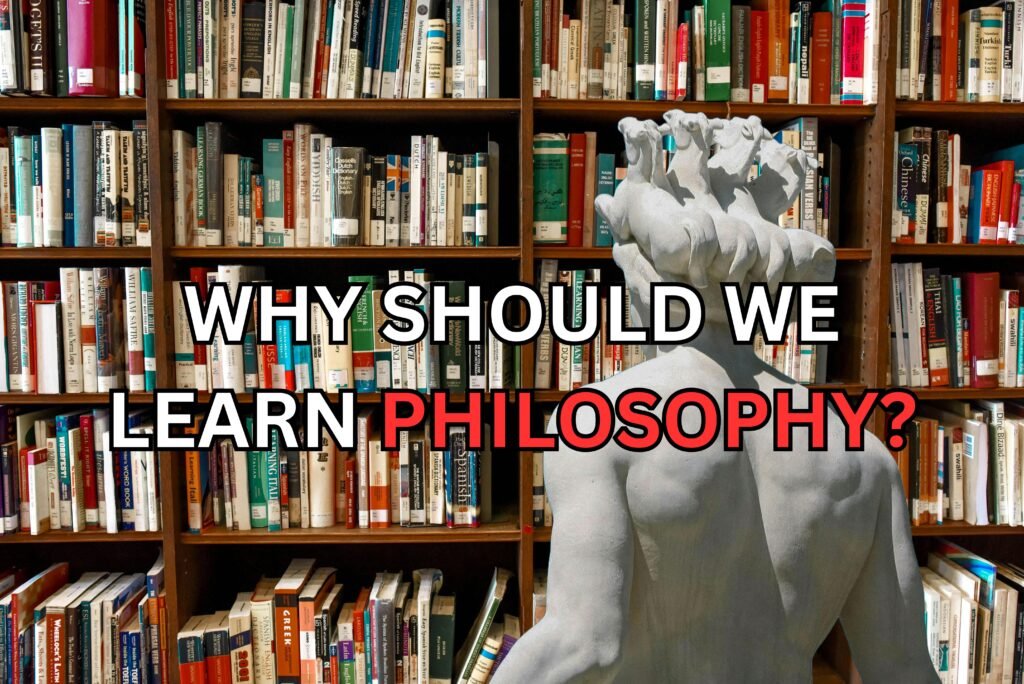Philosophy in Personal Development
Introduction
This guide explores Philosophy in Personal Development. It prompts you to question what many take for granted in their pursuit of a successful career. Welcome to the world of philosophy, where ancient wisdom offers a revolutionary twist on all knowledge. By incorporating critical thinking and reflection into your daily life, you will benefit from this transformative journey. This blog post teaches you how to apply philosophical principles in your quest for self-development and offers 7 powerful insights on becoming the best version of yourself.
Why You Need Philosophy in Personal Development
Questioning Your Inherited Beliefs
Your worldview and decision-making skills form in childhood, shaping how you see the world today. The beliefs you adopt early on often feel like absolute truths, but they can hold you back. That’s why it’s crucial to question these inherited beliefs during your personal growth journey. By challenging your assumptions, you break free from outdated mindsets and open yourself up to flexible thinking. This process not only helps you leave your past behind but also propels you forward. Ask yourself: do your beliefs empower you or limit your potential?
The Role of Philosophy in Self-Awareness
Incorporating philosophy into your personal development routine cultivates the habit of questioning assumptions, boosting your self-awareness about your motivations. This heightened awareness leads to wiser decisions and smarter actions, both personally and professionally.
Developing a Critical Thinking Habit
Unchallenged beliefs can be roadblocks in your personal and professional life. When you cling to ideas without questioning them, you stifle your progress. The first step? Embrace critical thinking. Dive into deep, philosophical questions—this is a powerful way to sharpen your thinking skills.
Practicing Philosophical Inquiry
Practicing philosophical inquiry lets you evaluate your values and opinions, helping you recognize your biases. This introspection fosters a broader perspective, empowering you to make better decisions and nurturing a growth mindset that’s essential in today’s fast-paced business world.
Mastering Critical Thinking
Mastering critical thinking is a game-changer for personal growth and maturity. It teaches you that your assumptions aren’t always right and that you don’t have all the answers. This realization leads to grounded decision-making. Make it a daily habit to integrate philosophical inquiry into your routine and unlock your true potential.
The Importance of Engaging with Philosophy
Philosophy and Real-World Change
Philosophy can lead to real-world change, but only if you actively engage with it. The questions we explore today will help us align our decisions with our values and beliefs, guiding us toward a fulfilling life.
Understanding the Concept of Truth
Understanding the concept of truth is central to philosophy. Knowing what truth really means allows us to become sharper judges of the world around us. The debate between objective and subjective truths is crucial here. Objective truth is about verified reality, while subjective truth is shaped by personal experiences.
Grasping Distinctions for Ethical Choices
Grasping these distinctions enhances our understanding of truth and its impact on our lives. This insight helps us make more ethical choices backed by action. Plus, exploring philosophical questions about morality and meaning sheds light on what it takes to live a rich, meaningful life.
Pros:
- Encourages critical thinking and self-reflection.
- Helps align actions with personal values and beliefs.
- Promotes a deeper understanding of truth and morality.
Cons:
- Can be seen as abstract or impractical if not actively engaged with.
- May lead to confusion or frustration when grappling with complex concepts.
- Requires time and effort to explore adequately.
Philosophy In Our Day-to-Day Decisions
We can apply philosophical principles practically to develop resilience and adaptability. Practicing these principles in our daily routines allows us to live a more intentional and considered life.
Stoicism
Stoicism, an ancient Greek philosophy, teaches us to focus on what we can control and accept what we cannot. This mindset helps us endure and succeed in adversity, especially when faced with challenges. By applying the principles of Stoicism, we can improve our study habits and life paths, replacing mental chaos with relaxation as we achieve our goals.
Existentialism
Existentialism emphasizes our freedom and obligation, inspiring us to take control of our lives. By embracing this philosophy, we cultivate a strong sense of purpose and motivation, driving us to pursue our passions and leave a lasting legacy.
Philosophy and Nature
The connection between philosophy and the investigation of nature benefits us in many core areas. Incorporating philosophical frameworks into scientific research fosters a more holistic and innovative understanding of the world. Philosophy underpins science, as scientific inquiry draws from philosophical questioning, providing conceptual tools and paradigms that shape theories and methods. The philosophy of science, for instance, examines what distinguishes scientific knowledge and how it is created. By addressing metaphysical questions, philosophy serves as a corrective to the scientific community, enhancing our understanding of science and improving research methodologies.
Similarly, philosophical problems stimulate scientific inquiry, encouraging exploration of new possibilities and fostering implicit understanding of previously overlooked aspects of nature. This synergy between philosophy and science enables us to achieve a more comprehensive definition of our world and promotes advancement in both fields.
Challenging Traditional Ideas
Merlin, a philosophy instructor, highlights that few disciplines can effectively challenge inherited beliefs and societal norms. When we question accepted patterns of thought, we ignite creativity in our pursuit of knowledge and self-improvement.
Perk
Intellectual curiosity and flexibility are crucial for personal growth. The ability to see different perspectives makes us more worldly citizens. Developing these skills equips us to be adaptable, resilient thinkers and innovators, ready to thrive in a shifting landscape.
Philosophy encourages us to reassess our beliefs and their foundations, reflecting on their consequences for our actions. This integrated perspective enables us to take thoughtful action. By questioning traditional notions of limitation, we can redefine narratives and achieve greater personal and professional success.
Real-World Wisdom for Personal Growth
Studying philosophy enriches personal development, offering insights that guide our lives. We can use philosophical concepts to navigate our journey toward personal growth, making the process more inspiring and intentional.
The ancient Greek philosophy of eudaimonia, or flourishing, emphasizes the importance of living virtuously. By developing virtues like wisdom, courage, and compassion, we find a sense of purpose that enhances our lives.
Additionally, mindfulness meditation fosters self-awareness and emotional intelligence, as supported by both Western science and Eastern philosophy. Incorporating mindfulness into our daily routines helps bring balance and peace to our personal growth.
Self-Reflection Techniques
Self-reflection plays a crucial role in personal development. It allows us to examine our thoughts, feelings, and actions, identifying areas ripe for growth. By applying philosophical ideas and approaches to our self-reflection process, we gain deeper self-understanding and enhance our ability to navigate life’s challenges.
Journaling
Journaling serves as a powerful method for self-reflection. By writing down thoughts and experiences as they arise, individuals gain clarity and a new perspective on their lives. This activity enables better decision-making and fosters clearer actions.
Meditation
Meditation boosts self-awareness, enhancing emotional intelligence—a crucial component for growth. By incorporating meditation into daily habits, you become more conscious of each step toward personal development, leading to greater balance and harmony. Hyde describes this process as Transformative Personal Growth.
Philosophy as a Tool for Growth
When used effectively, philosophy transforms personal growth, providing insights on how to evolve and guidelines for the journey. Studying philosophical concepts allows individuals to achieve their highest potential in both personal and professional realms.
Reading Philosophical Blogs
One of the best ways to incorporate philosophy into your self-improvement routine is by regularly reading philosophical writings. Gaining insights from history’s most revered philosophers offers authenticity and direction on your personal journey.
Engaging in Discussions
Participating in regular philosophical discussions sharpens critical thinking and encourages questioning of previously held beliefs. These conversations broaden your understanding of key topics, enhancing personal development.
Mindful Living
Building deeper emotional intelligence is essential for mindful living and personal growth. By integrating philosophical ideas into contemplative practices, you cultivate a more intentional and fulfilling way of life.
Cultivating Gratitude
Regularly practicing gratitude allows you to focus on the positive aspects of life, fostering contentment and balance. Actively expressing thankfulness leads to a more fulfilling existence.
Practice: Living in the Moment
Living in the moment means confining your awareness to present situations. This practice enhances attentiveness and deliberate engagement in personal development, nurturing balanced self-evolution.
Using Philosophy in Personal Development
Leverage philosophy to uncover and fulfill your life purpose. Gaining wisdom through this approach enhances your understanding of life values, morals, and ethics.
Introspection and Self-Reflection
Utilize introspection to explore your desires, whether in college or beyond. This self-reflective process allows for a deeper understanding of your motivations, guiding you toward wiser choices.
Learning from Mentors
Seek wisdom from mentors and guides to enhance your journey toward life purpose. Their experiences and insights provide valuable support as you work toward fulfilling your potential.
Conclusion
Philosophy adds depth to your personal growth journey, broadening your perspective on development. Delving into these philosophical ideas fosters a deliberate process that brings out your best self and leads to success in all areas of life.
Are you ready to break free from existing paradigms and embrace maximum personal growth? Follow us on Instagram to explore the intersection of Philosophy and Personal Development. Use your critical thinking skills to kickstart a purposeful life today! Find daily inspiration on EXTRABLITZER.



Thats great and very helpful